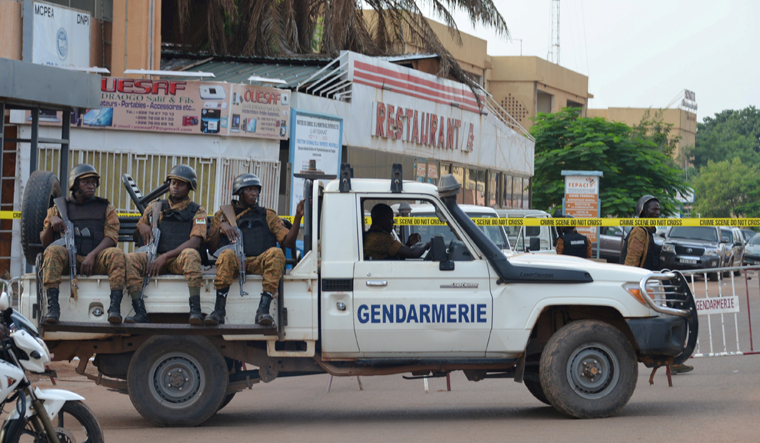When the Burkinabe government declared a state of emergency in the country for the second time in five years on December 31, thanks to the terrorist attacks by ‘jihadist’ outfits, the country became the host to a future war on terror.
Burkina Faso and its fellow west African states have long had to deal with the menace of the African division of Al Qaeda, known as Al Qaeda in the Islamic Maghreb (AQIM). As security forces face death against the deadly terrorist organisation, Burkina Faso might have to call upon its former colonial master for assistance.
Burkina Faso is a landlocked francophone country with strong ties to France in various aspects. Known as French Upper Volta prior to 1960, it had been a colony of the French administered west Africa. France has listed Burkina Faso as one of their most prioritised countries in need of development assistance. They have assisted the Burkinabe with agriculture and food security issues, human development, cultural cooperation and governance. But despite France’s efforts to help, the entire west African region has largely been neglected from economic and societal development plans. Burkina Faso turning out to be a new breeding ground for religious fundamentalism and extremism is a result of this neglect by the West.
When President Blaise Compaoré’s 27-year-long rule came to an end in 2014, Lt. Col. Isaac Zida, a close aide of the former president, took over political and defence duties. The sudden end of a stern regime and an unsuccessful coup attempt in 2015 meant Burkina Faso had let its guard down, at least temporarily. AQIM and various other jihadist groups have capitalised on this opportunity and have started plotting and carrying out various attacks since then. France, whose liberal ideologies have spread throughout west Africa due to their strong cultural and economic clout, has always been seen as a threat to the existence and beliefs of the AQIM.
Jihadist groups view France, Spain, the United States, and other western influencers in the continent as harbingers of anti-Muslim rhetoric and have sought to dispel them from the continent for years. The AQIM’s primary aim is to overthrow the Algerian government and establish an Islamic Caliphate in the region. Apart from Algeria, the AQIM launches attacks on neighbouring countries that they deem ‘un-Islamic’. But unlike its parent organisation al-Qaeda, the AQIM views France and, less significantly Spain, as its bigger enemy and targets local governments to achieve their goals. The AQIM has promised to ‘reclaim’ parts of Spain and the Iberian Peninsula, which they view as lost Muslim land. They had declared France’s ban on the hijab in public spheres as an insult to Islam. French intervention against AQIM in Mali in the Northern Mali conflict in 2013, although has not led to them attacking Europe, has definitely intensified hostilities between the two and it is just a matter of time before they begin doing so.
With the terror threat on constant rise, France and the European Union have allotted 1.3 billion euros as anti-terror aid for Africa. The French have deployed their Barkhane anti-terror force in neighbouring Mali, with training being given in Burkina Faso. Furthermore, Paris has stationed troops in Oagadougou for years and has sent said troops to intervene in threats to the French mission.



